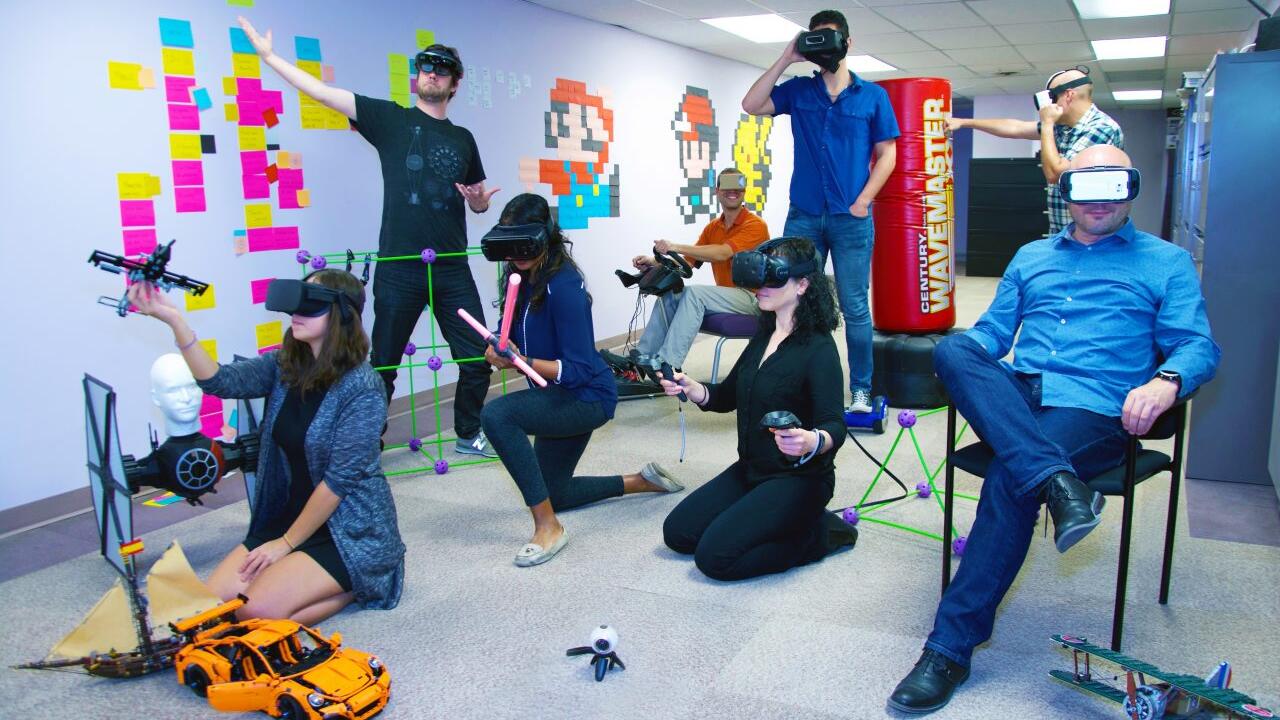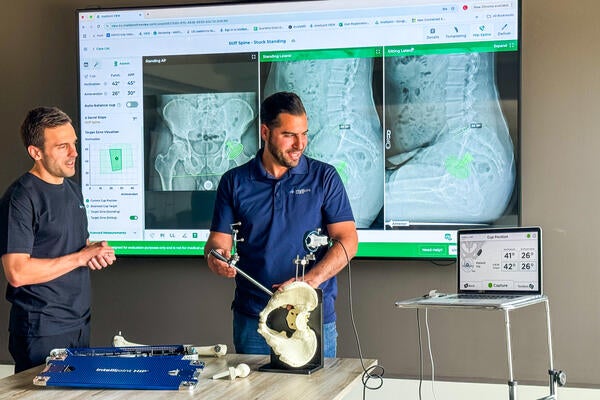
Creating digital experiences in an Aladdin’s cave of technology
Waterloo Engineering alumnus Ian Hall is the co-founder of Pixel Tours

Waterloo Engineering alumnus Ian Hall is the co-founder of Pixel Tours
By Julie Stauffer Faculty of EngineeringPixel Tours has big ambitions for the creation of what it calls “mind-blowing digital experiences,” although you wouldn’t know it standing outside the company’s headquarters: an unremarkable three-storey building in an industrial park in north Toronto.
Descend into its basement digs, however, and you’ll discover an Aladdin’s cave of technology, including a $10,000 gaming machine, a virtual reality rig and massive 4K screens, not to mention a collection of high-end Lego.
![]() Here, a team of nine programmers, visual designers and UX experts are working at the intersection of technology and human experience.
Here, a team of nine programmers, visual designers and UX experts are working at the intersection of technology and human experience.
This fall, for example, the Department of Architectural Science at Ryerson University began using the company’s virtual reality software in its first-year studio class. Instead of showcasing their designs on a flat screen, students can now transform them into fully immersive 3D experiences.
Pixel Tours co-founder and managing director Ian Hall.
“It really is fundamentally disruptive,” says Ian Hall, co-founder and managing director of the company.
When Hall and fellow University of Waterloo graduate Kevin Martin launched the startup in 2003, they wanted to do cool things with smart people. Their first gig was creating websites for AutoTrader.ca and RentersNews.ca with virtual tour capabilities — cutting-edge technology at the time.
Since then, they’ve worked with a client list that includes Rogers Communications, P&G, Kohler and 407 ETR.
One project involved the development of a commercial furniture sales app to replace binders and swatch books with 3D visualization technology, including an augmented reality feature that lets users photograph the current space and then drop in the furniture they’re considering.
Currently, they’re developing ways to take Royal Conservatory of Music programs online so more kids can experience the cognitive benefits of early music education.
“We’re not the guys you come to (for) just pure branding types of exercises,” Hall says of the digital experiences Pixel Tours creates. “We like big, complex, interactive-type challenges.”
To boost their capacity to take on those challenges, Pixel Tours encourages staffers to take time out to play with what’s coming next, whether it’s experimenting with the latest Oculus Rift headset or conducting a little “UX study” on a hot new video game.
Not only do those breaks enhance staff morale, they also create direct payoffs.
“Every time you get to play around with this stuff, you come away with an insight,” Hall says.
Another factor that sets Pixel Tours apart from other development companies is its marriage of deep technology expertise with human-focused design. A lot of that expertise comes from the University of Waterloo.
Hall studied electrical engineering, a program he calls the best in North America. And while he leaves the micro-coding to others these days, the discipline and critical thinking skills he developed as an undergraduate continue to serve him as a business strategist.
It’s no accident that half of the Pixel Tours staff are Waterloo graduates and the chances are it will be hiring more of them as it scales up in coming years.
“The skill set that we’re building out is going to give us the ability to go after even more ambitious projects, things that are going to have even a bigger impact on the world,” Hall predicts.

Read more
Two University of Waterloo affiliated health-tech companies secure major provincial investment to bring lifesaving innovations to market

Read more
How Doug Kavanagh’s software engineering degree laid the foundation for a thriving career in patient care

Read more
Upside Robotics secures new funding to accelerate the future of sustainable farming
The University of Waterloo acknowledges that much of our work takes place on the traditional territory of the Neutral, Anishinaabeg, and Haudenosaunee peoples. Our main campus is situated on the Haldimand Tract, the land granted to the Six Nations that includes six miles on each side of the Grand River. Our active work toward reconciliation takes place across our campuses through research, learning, teaching, and community building, and is co-ordinated within the Office of Indigenous Relations.